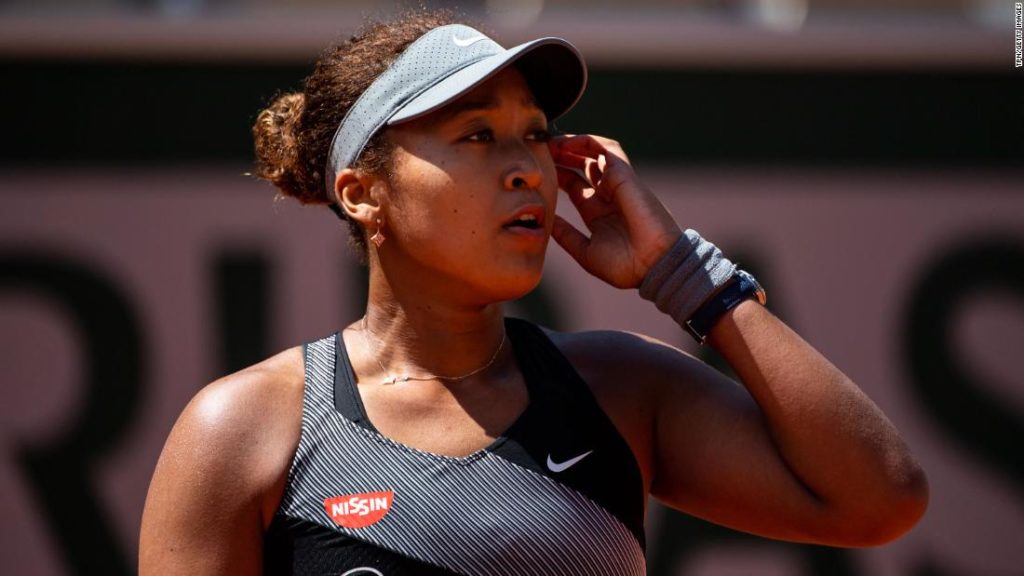The 18-time grand slam winner suggests that Osaka didn’t think the situation would “cause this much fuss” when she first announced that she wouldn’t be taking part in media conferences because of their impact on her mental health.
Unlike other sports, tennis players are breaking through at an increasingly young age, with many appearing on the biggest stage as teenagers.
Which is why the media need to “have some respect” because fame at such a young age can often be “devastating,” according to Evert.
“I think the press have to take a stand, have to go up another level and have some respect,” the 66-year-old told CNN’s Chris Cuomo.
“Fame and fortune at a young age, and thank god the women’s tennis association has resources — mental health resources, media training resources. There’s help out there for these kids.
“But when you come from a very close knit family, very modest upbringing and all of a sudden you’re the most famous athlete in the world and you’re the highest winner of money and trophies in the world, your life changes and it can be quite devastating also.”
Improving the relationship between players and the media is in the best interest of everyone, says Evert.
“I think that everybody has to talk about a solution to make this a healthy environment for the players to go into, because we’re all in this together to promote the sport.”
Coping
On Monday, Osaka said in her statement that she would be withdrawing from the 2021 French Open so that “everyone can get back to focusing on the tennis going on in Paris,” adding that she would “take some time away from the court.”
Osaka revealed she had “suffered long bouts of depression” since winning her first grand slam title in 2018.
Last week, citing mental health reasons, Osaka had posted on social media she would not participate in any news conferences during the French Open, hoping that any fines she incurred would go to a mental health charity.
Following her straight-sets victory on Sunday in the first round, Osaka was fined $15,000 for not talking to the media, Roland Garros announced in a statement.
The heads from the Australian Open, French Open, Wimbledon and US Open said they would offer “support and assistance” to Osaka while continuing to “improve the player experience at our tournaments.”
Dealing with these often male-dominated press conferences — something Kris Soutar, a consultant for Tennis Scotland and the Judy Murray Foundation, founded by the mother of Andy Murray, calls a “vulture pit” — can be intimidating for the players, in particular the losing one.
Seven-time grand slam winner Venus Williams shared her secret for dealing with the press after her first-round loss to Russia’s Ekaterina Alexandrova at the French Open on Tuesday.
“I know every single person asking me a question can’t play as well as I can and never will,” the 40-year-old Williams said.
“No matter what you say or what you write, you’ll never light a candle to me. So that’s how I deal with it. But each person deals with it differently.”
On Tuesday, world No. 1 Novak Djokovic also voiced his support for Osaka.
“I support her, I think she was very brave to do that,” he said. “I’m really sorry that she is going through painful and suffering mentally as what I’ve heard.
“This was, I must say, a very bold decision from her side. But she knows how she feels best, and if she needs to take time and reflect and recharge and that’s what she needed to do, and I respect it fully. And I hope that she’ll come back strong.”
Sheena McKenzie and Kevin Dotson contributed to this report.
You may also like
-
Super League: UEFA forced to drop disciplinary proceedings against remaining clubs
-
Simone Biles says she ‘should have quit way before Tokyo’
-
Kyrie Irving: NBA star the latest to withhold vaccination status
-
Roger Hunt: English football mourns death of Liverpool striker and World Cup winner
-
‘Every single time I lift the bar, I’m just lifting my country up’: Shiva Karout’s quest for powerlifting glory

